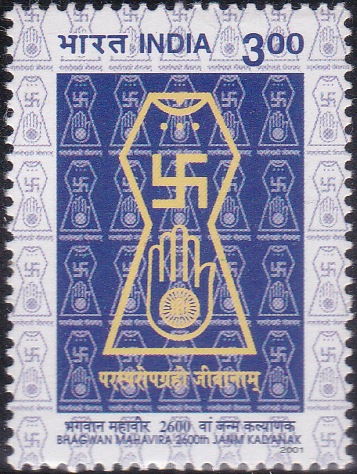
Bhagwan Mahavira 2001
A commemorative postage stamp on the 2600th Janm Kalyanak of Bhagwan Vardhman Mahavir, the 24th Tirthankara, revived Jainism :

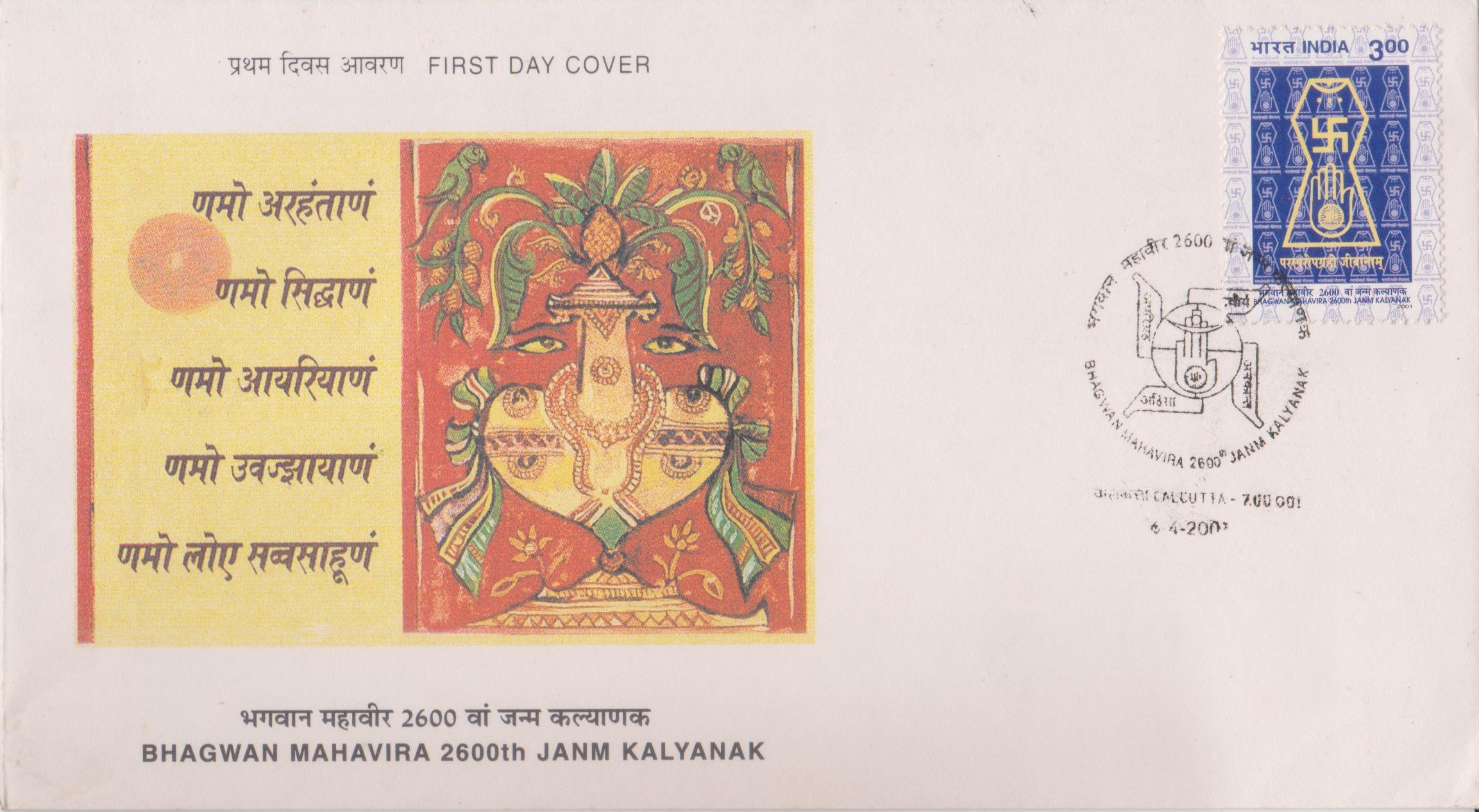 Issued by India
Issued by India
Issued on Apr 6, 2001
Issued for : The Department of Posts is privileged to pay homage to Bhagwan Mahavira by issuing a postage stamp to mark the celebrations of his 2600th birth anniversary. The stamp portrays a composite symbol summarising much of Jain teaching.
Credits :
Stamp & FDC : Sankha Samanta
Cancellation : Prashant Shah
Type : Stamp, Mint Condition
Colour : Four Colour
Denomination : 300 Paise
Overall size : 2.90 x 3.91 Cms.
Printing Size : 2.54 x 3.55 Cms.
Perforation : 13 x 13
Paper : Imported Unwatermarked Stamp Paper
Stamps Printed : 3 million
Number per issue sheet : 40
Printing Process : Photo Offset
Printers : Madras Security Printers Ltd.
Name : Mahavir Vardhman (Nigantha Nataputta)
Born on 599 BCE at Kundagram, Vaishali district, Bihar, India
Died on 527 BCE at Pawapuri, Bihar, India
About :
- Bhagwan Mahavira, the 24th Tirthankara of the great Jain tradition was born in a royal family in the district of Vaishali in Bihar. His father, King Siddhartha was the ruler of this region and mother Trishala was the daughter of King Cetaka.
- Mahavira‘s childhood name was Vardhamana. Even as a child, he was full of compassion and showed spiritual inclination. His sensitive and contemplative nature led him to explore the causes and remedies of the various ills that he saw in the society around him. After leading the life of a householder till the age of thirty, he abandoned the world in the search for truth and became an ascetic. He wandered from place to place for twelve years, leading a life of penance, austerity, self-discipline and self-purification. He attained omniscience (kewala–jnana or kaivalya) at the age of forty two, having found solutions for all the problems connected with life and the universe through deep meditation. Thus, through kaivalya, he conquered misery and happiness. Because of this conquest he is known as Mahavira.
- Mahavira preached the five great principles of non-violence, truth, absolute honesty, non-possession and celibacy. He gave the message of love and compassion towards all living beings. He held that salvation is nothing but eternal bliss which can be realised in this very existence by one’s well directed efforts. He was of the view that man himself was the master of his destiny and every soul had the capability to rise to absolute perfection, the supreme position where it was free from the bondage of transmigration. Bhagwan Mahavira admitted men and women alike into his order without any discrimination. He launched a crusade against all ills prevalent in society.
- Ahimsa (non-violence) and Anekant (the theory of multiple facets of truth & reality) were central to Mahavira‘s teachings. He exhorted his followers not to kill, injure, enslave, torture or exploit any living being. In the strife-torn world of hatred and hostilities, aggression and unscrupulous exploitation, Jain teaching of Ahimsa not only towards human beings but towards life in all its forms, has a special significance. Non-violence in Jain philosophy has a much wider connotation than its literal meaning. It entails compassion, empathy, charity, universal friendliness and universal forgiveness. Anekant, and in its subtlest form, Ahimsa also teaches tolerance of contrary thought and view.
- Bhagwan Mahavira‘s teachings have an enduring relevance and it put into practice, they will not only add meaning to the life of individuals, but also make the world a much better place to live on.
- Text : Based on material supplied by the sponsors.


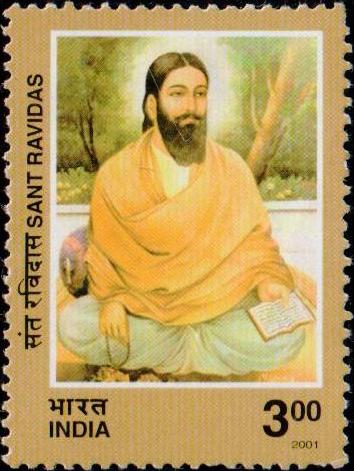
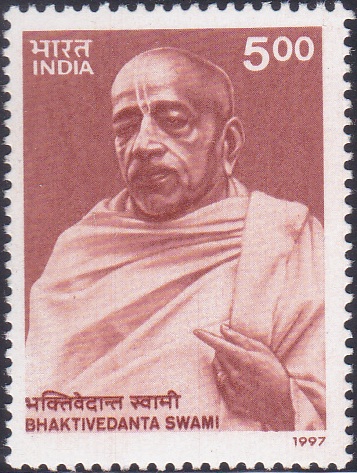
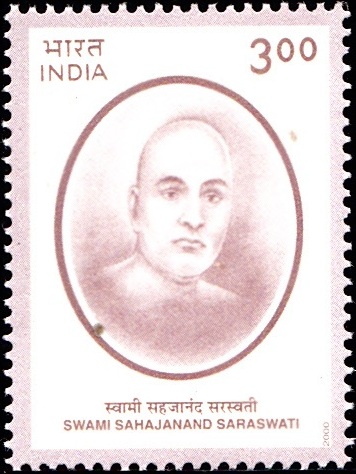
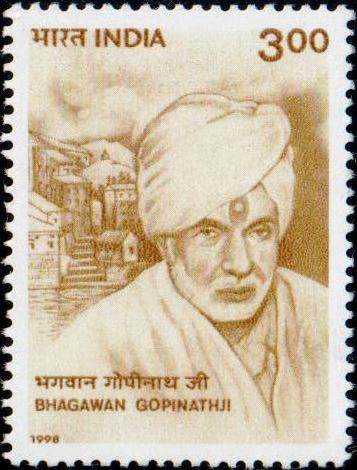
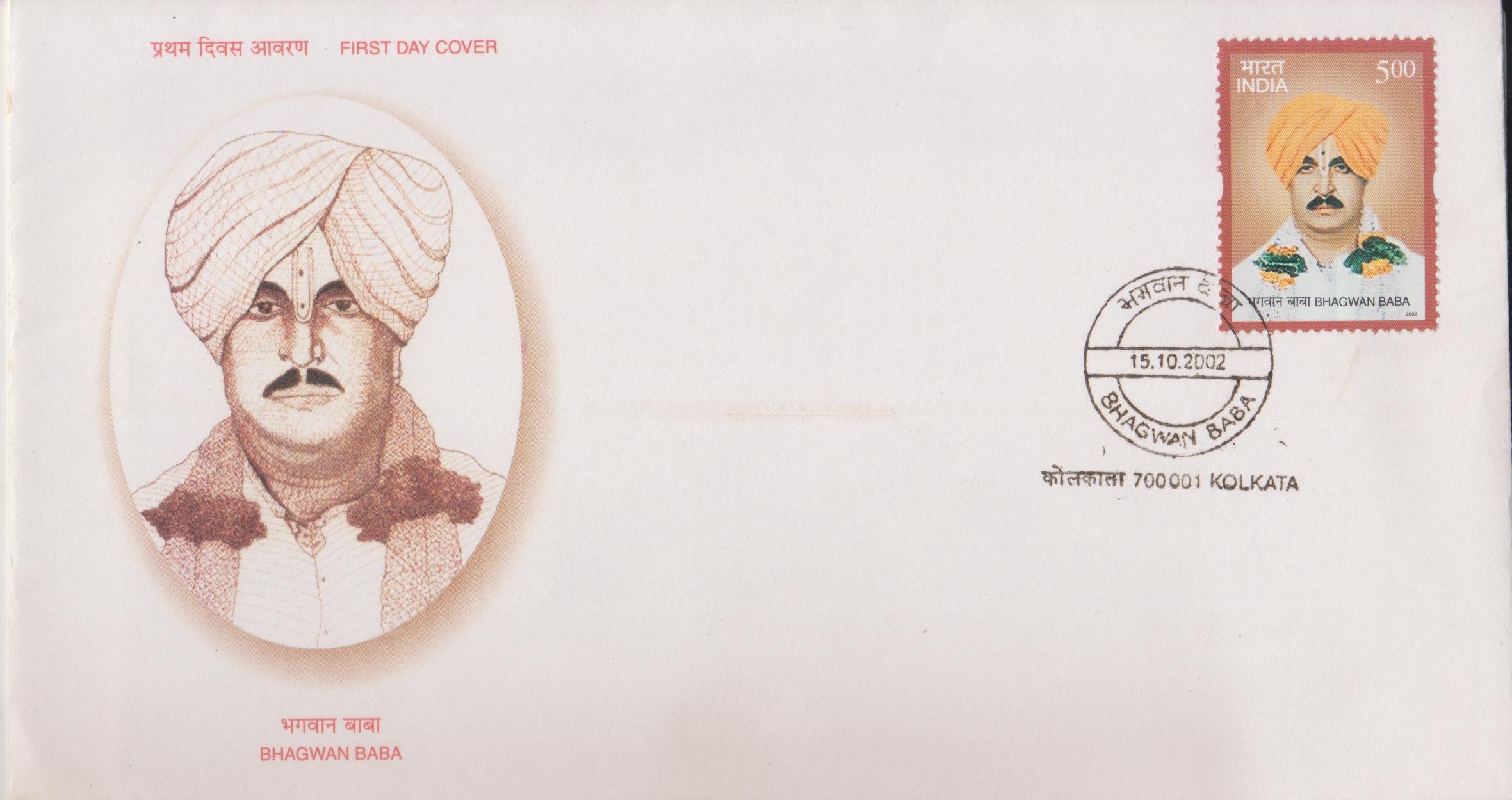

[…] Atmaramji taught Muni Vallabh the Jaina philosophy propounded by Lord Mahavir viz Ahimsa (non-violence), Anekant (non-absolutism), Aparigraha (non-possessiveness). Vallabha also […]
[…] daily routine was marked by discipline, exactitude and regularity. Even though most of Lord Mahavir‘s teachings are in Ardhamagadhi yet to make sure that the young lad was not bereft of the […]
[…] Atmaramji taught Vijay Vallabh, the Jain philosophy propounded by Lord Mahavir viz Ahimsa (non-violence), Anekant (non-absolutism), Aparigraha (non-possessiveness). Vijay Vallabh […]